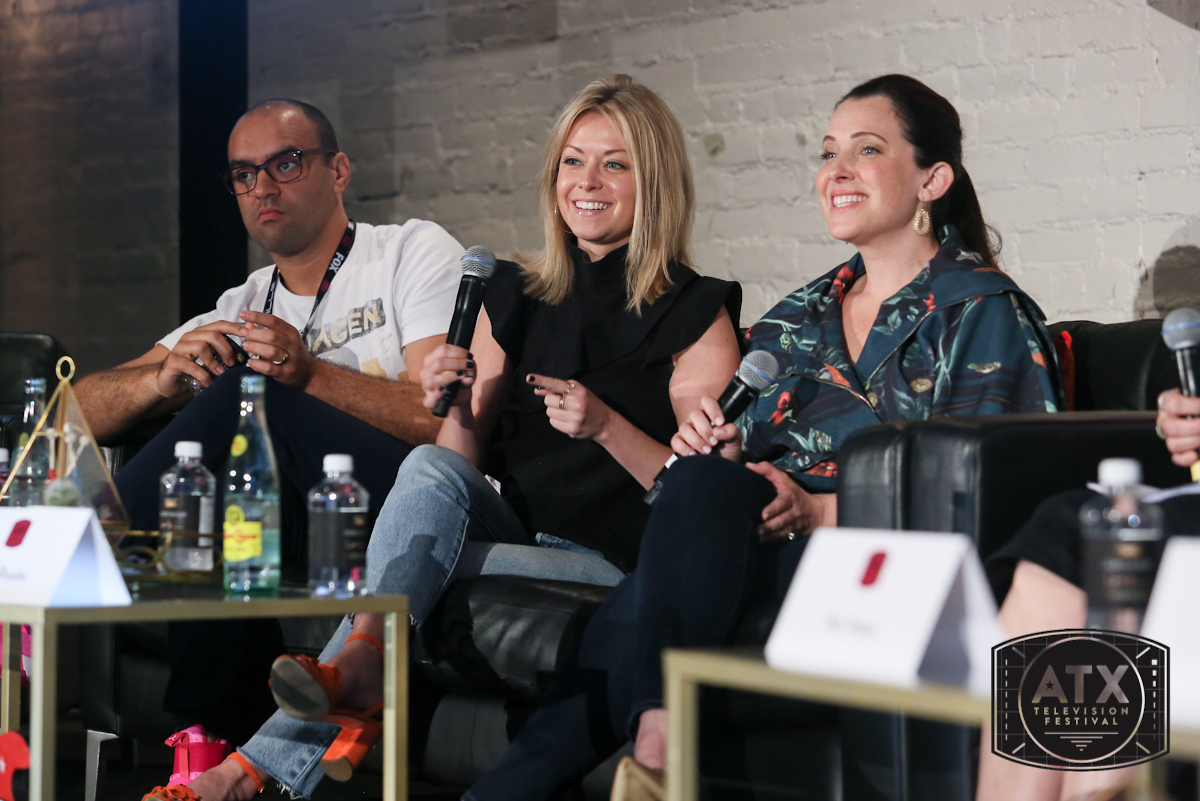‘Black Lightning,’ ‘Sharp Objects,’ ‘East Los High’ Bosses on ‘Accountability’ and ‘Integrity’ at a Time of #MeToo
By Marisa Roffman
LOS ANGELES (Variety.com) – In an era of #MeToo revelations, the pressing question is what comes next to fundamentally shift the toxic behavior that often festers in the industry.
“I think we’re in the beginning of accountability. It’s scratching the surface,” “East Los High” executive producer Mauricio Mota said at the ATX Television Festival Saturday.
It’s been more than eight months since the wave of allegations came out against Harvey Weinstein, et al., and Mota noted one change is that some people are more careful about expressing themselves.
“Every week I hear a different story about ‘That person is thinking five times before saying something in the writers’ room.’ That’s a good sign, but it’s not change. It just means the bully is really controlling the words he or she says. …Our industry has so many rules; you need to go through this specific gate keeper. Because of those rules, a lot of that abuse happens.”
For television shows, writer Pam Veasey (“CSI: NY”) stressed the importance of having a responsible and ethical showrunner lead the way.
“What they do in a room and how they run their show and what integrity they have should be followed by the people who work for them,” she said. “They have to be the example. At times there are questions of what choices you have to make. You work so hard to get here, and when you get here, you want to stay in it. It’s such a shame that you would have to make the choice of your own personal integrity or the job. There are so many choices you have to make as women…but you have to believe you’re in an environment where you’re safe.”
However, trying to combat abuse, especially when you’re new, can be difficult.
“Being able to speak up is a position of privilege,” executive producer Marti Noxon (“Dietland,” “Sharp Objects”), who was in the audience, pointed out.
Kathleen McCaffrey, senior vice president of programming at HBO, noted she has seen a difference in younger employees. “The generation under me is more willing to talk…the women who work at the lower levels are calling it out,” she said. “I’ve been impressed that if something feels wrong, they’re saying it. It’s going to be slow, but I think it’s happening.”
Executive producer Jessica Rhoades (“Sharp Objects”) acknowledged this is a learning opportunity for people in power to learn how much harm their thoughtless comments and action can cause.
“As much as I feel like we’ve learned to [keep our frustrations quiet, I don’t think they’ve been given the opportunity to learn, because they didn’t have the opportunity to know the thing they did made us uncomfortable. They learned, too,” Rhoades said. “No one heard it was wrong [prior to this].”
“Black Lightning” creator Salim Akil reiterated the importance of standing up for yourself, pointing to his own history of being labeled “genre” — and having his experience questioned — due to his previous work creating shows with black leads.
“The moment you hit the boards, you have to choose to fight, he said. “There are a lot of not only privileged, but people who have been privileged for a very long time…it’s almost like a bully. As soon as you decide, ‘F— you, i’m not going to let you wield this power over me’…most of them will actually listen. They’re not necessarily listening to you because you have something interesting to say, but you have something interesting to sell. I think it won’t be a situation where we’re expecting them to change. We’re changing the dynamic.”

